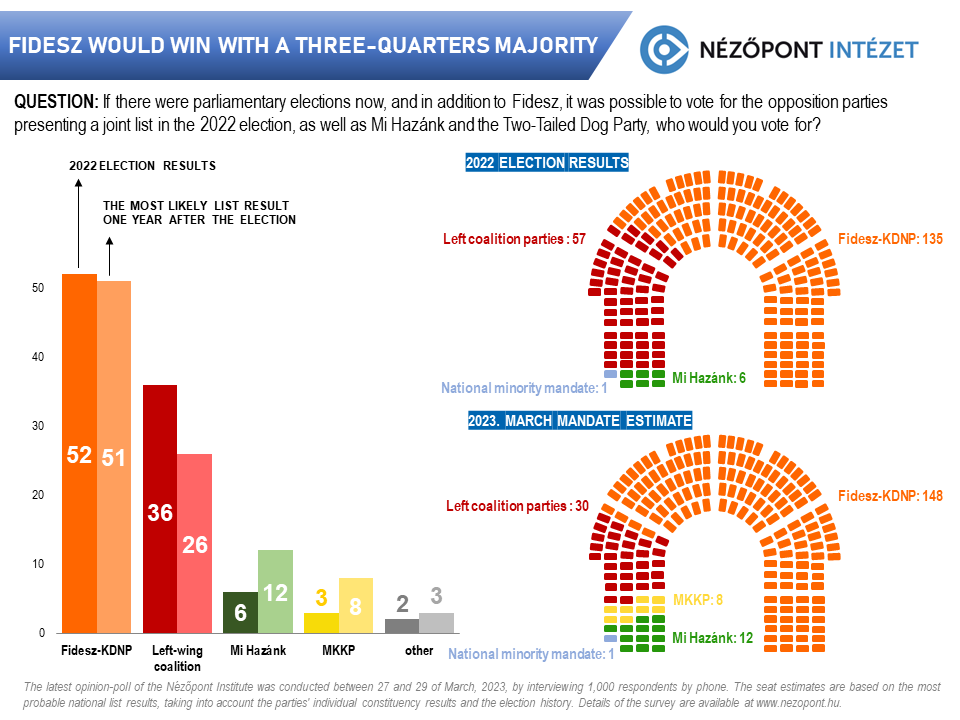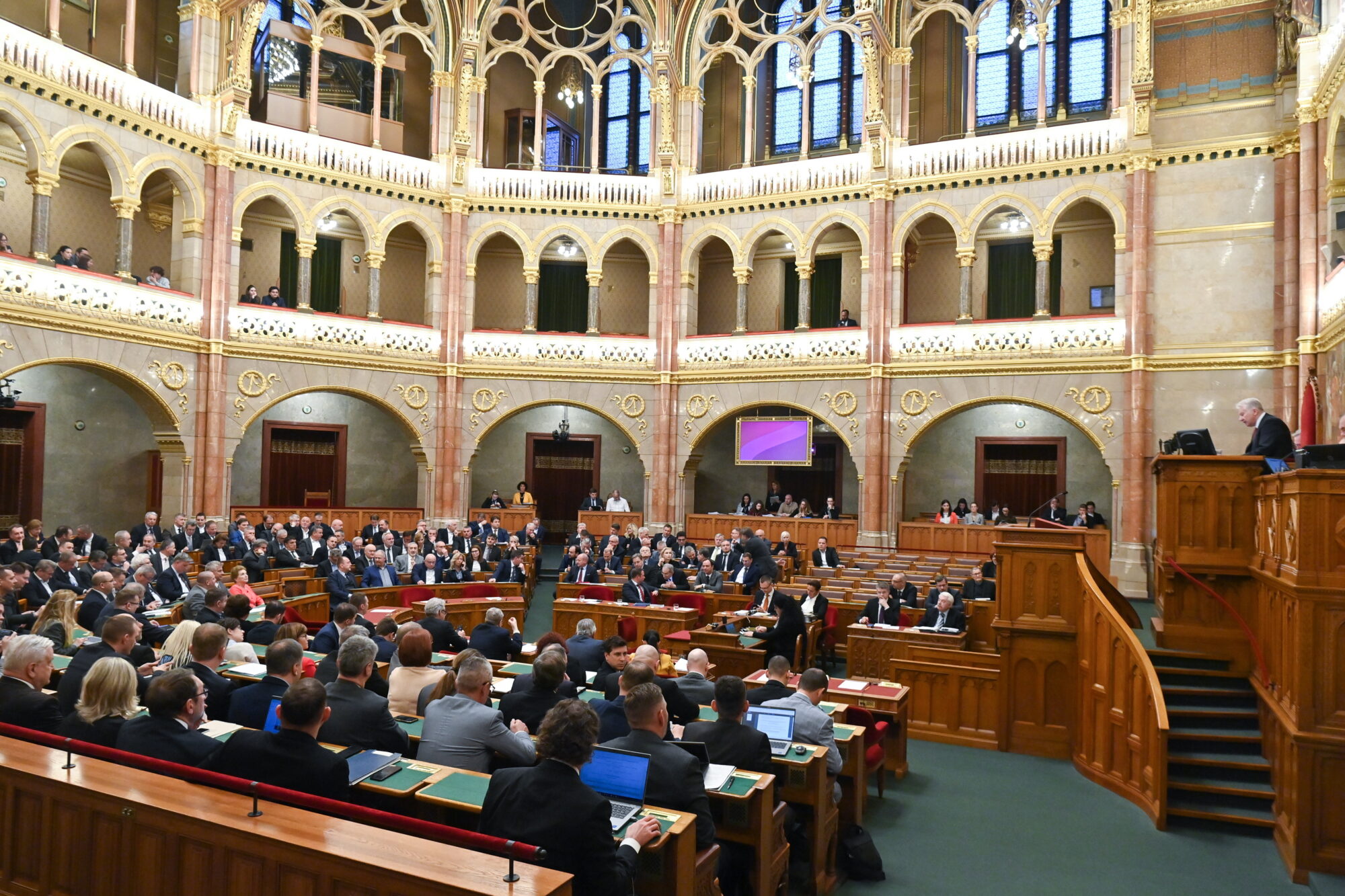A recent opinion poll conducted by the Nézőpont Institute shows that one year after the elections, the support for Fidesz-KDNP is still at the same level (51 percent), while last year’s left-wing coalition would receive 10 percentage points fewer votes (26 percent), if an election were held “this Sunday”. Converting the support rates into seats, Fidesz would gain a three-quarters majority, while the left-wing coalition would lose almost half of the seats they won last year.
On the occasion of the one-year anniversary of the 2022 elections, the Nézőpont Institute has conducted a survey to find out how last year’s parties and party alliances would perform one year later. Most of the parties of last year are still active in politics; only the left-wing opposition has changed significantly. For the sake of clarity, we have referred to the left-wing parties that came together last year as the “opposition parties that formed a joint list for the 2022 elections”.

According to last week’s survey, if an election were held “this Sunday”, Fidesz-KDNP would win 51 percent of the votes, which, due to the margin of error, is the same result as their record of 52 percent in the previous year. This indicates that despite the economic challenges of the ongoing war and the recent energy crisis, the government still holds a strong public mandate.
However, the significant realignment on the opposition side indicates a sustained mood for a renewal in the opposition. Although the left-wing coalition suffered a historic defeat last year, the former joint list has lost another 10 percentage points in popularity after one year. This means that since the heavy defeat, almost a third of the former left alliance voters have turned away from the joint list. The remaining opposition parties have benefited from those who have moved away from the left. In the race among the parties and party alliances of last year, the Our Homeland Movement would double its previous election result, with a 12 percent of support and a stable parliamentary force. The Hungarian Two-tailed Dog Party (MKKP), which previously won 3 percent of the votes, currently would gain 8 percent. It’s no joke that a joke party would get into the parliament.
A repeat of last year’s election results “this Sunday” would also lead to a significant redistribution of seats in the parliament. Fidesz-KDNP’s current majority of 135 seats would increase to 148 seats, which would be a new record with almost three-quarters of the seats (74.4 percent). The left would lose 30 seats (15 percent of all mandates), down from the 57 they won last April, as they would also lose the constituencies in the capital where they won in April 2022. The left would retain a majority in only 2 of the 106 constituencies in the capital, and Fidesz would win the remaining 16, as well as the remaining 88 constituencies outside of Budapest.
With 12 seats, Mi Hazánk would double the number of its representatives, making it the largest opposition group, as the current leader DK would have to share the 30 available seats with the other left-wing parties. The MKKP would enter into the parliament with 8 seats.
Methodology
The latest opinion-poll of the Nézőpont Institute was conducted between 27 and 29 of March, 2023, by interviewing 1,000 respondents by phone. For all surveys, the sample is representative of the adult population (18 years and older) by gender, age, region, type of settlement and education. In case of a sample size of 1000 respondents and a confidence level of 95 percent, the sampling error is ± 3.16 percent. Respondent base = Hungarian voters, respondents who are willing to vote in the elections.
In order to calculate the parties’ national list results as accurately as possible, we use logistic regression.
The seat estimates are based on the most probable national list results, taking into account the parties’ individual constituency results and the election history of votes cast by Hungarians living outside the country. According to the Nézőpont Institute’s estimate, the German national minority MP would regain a seat.
